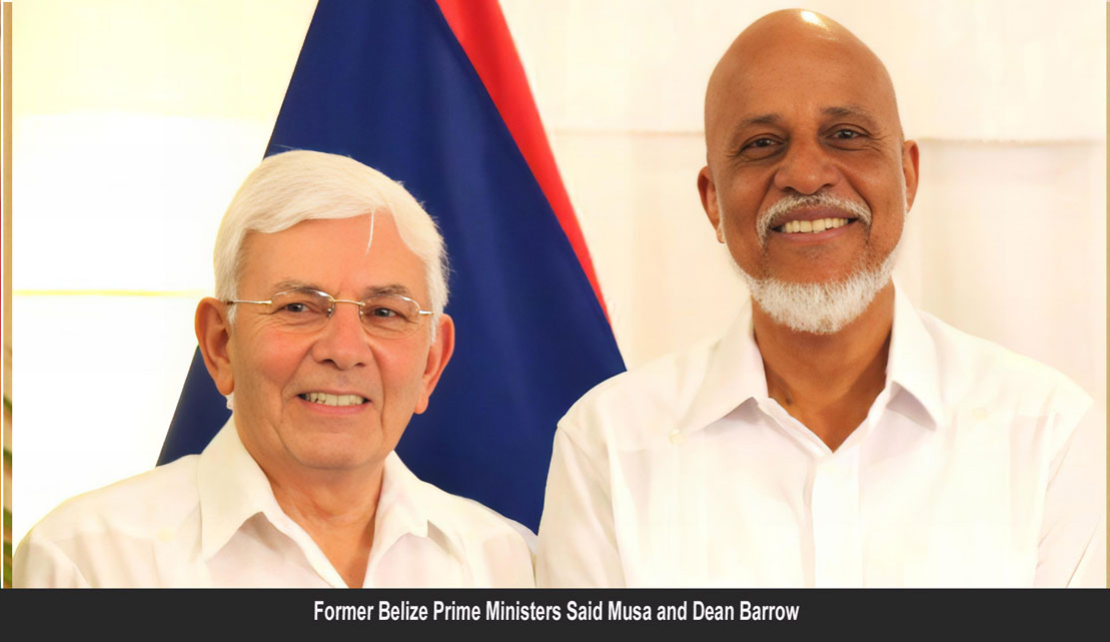BELIZE | Former PMs and Foreign Ministers defend Gov't's position on Israeli Genocide

MONTEGO BAY, Jamaica, January 31, 2024 — In a bold statement resonating from the heart of Belize's political history, former Prime Ministers Said Musa and Dean Barrow, alongside several past foreign ministers, have fervently defended Belize's decision to suspend diplomatic relations with Israel.
This declaration marks a significant stance in international relations, particularly amidst escalating global tensions.
The group of experienced diplomats, known for their impactful contributions to Belize's foreign policy, endorsed the Republic of South Africa's recent actions at the International Court of Justice.
They aligned with South Africa's charge of genocide against Israel, asserting that such measures were not only just but necessary under the obligations of the Genocide Convention.
This alignment underscores a growing international concern over the situation in the Middle East.
However, the former ministers expressed their disappointment with the ICJ's reluctance to impose a ceasefire. Despite this, they acknowledged the Court's directive towards Israel, emphasizing the need to prevent harm to Palestinians in Gaza and ensure the provision of essential services and humanitarian aid.
This element of the statement brings to light the complex and multifaceted nature of international law and its enforcement in times of conflict.
Furthermore, the statement implored Belizeans, particularly those opposing the government's support of Palestine and the suspension of diplomatic ties with Israel, to reconsider their stance.
This plea for national unity and support for a ceasefire reflects a deep concern for the escalating humanitarian crisis in the region.
The former leaders emphasized the importance of collective action in advocating for peace and stability, underscoring Belize's role in the international community.
Reinforcing their argument, the former ministers cited alarming data from a recent United Nations report. The report paints a grim picture of the situation in Palestine, highlighting the imminent threat of famine and the prolonged absence of essential services like water and electricity.
These stark realities provide a backdrop to the urgent call for international intervention and support for the Palestinian people.
In a concluding remark, the statement expressed a strong belief that Israel's actions align with an intent of total genocide. The skepticism towards Israel's commitment to comply with the ICJ's directives was evident, as the former ministers voiced doubts about Israel providing a report within the stipulated one-month deadline, demonstrating compliance with the Court's orders.
The statement closed with a resounding endorsement of the Belizean government's compliance with the Genocide Convention. It also urged the government to join South Africa in the substantive case against Israel for the alleged crime of genocide.
This endorsement not only reflects a commitment to international legal norms but also positions Belize as a vocal advocate for human rights and justice on the global stage.
The collective voice of Belize's former prime ministers and foreign ministers resonates with a profound understanding of international diplomacy and human rights. Their unified stance presents Belize as a nation committed to upholding the principles of international law and human rights conventions.
This is particularly significant given Belize's own historical struggles and its reliance on international law for its sovereignty and territorial integrity.
Their joint statement emphasizes that the issues at hand transcend religious divides, framing them instead as matters of colonialism and illegal occupation. They argue that the situation in Gaza is a consequence of an unlawful encroachment on Palestinian territory.
This perspective sheds light on the complexity of the conflict, moving beyond simplistic narratives and urging a deeper understanding of the underlying issues.
The former leaders also distinguish between the Jewish people and the state of Israel, noting that many Jewish individuals do not support the actions taken in their name. This distinction is crucial in preventing the conflation of the actions of a state with the beliefs of a religious or ethnic group.
By doing so, they aim to foster a more nuanced dialogue around the conflict, one that recognizes the diversity of opinions within communities.
In conclusion, the statement serves as a powerful call to action for the international community, urging nations to recognize and respond to the severity of the situation in Gaza.
It highlights the need for a concerted global effort to address the humanitarian crisis and to seek a peaceful resolution in accordance with international law and human rights standards.
As Belize aligns itself with these principles, it stands as an example of a small nation taking a significant stand on the world stage, championing the cause of justice and the protection of human rights.
The following is the full text of the minister's statement as regards Isreal's genocide against the Palestinians:
